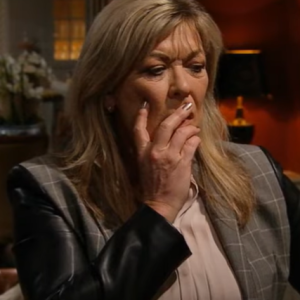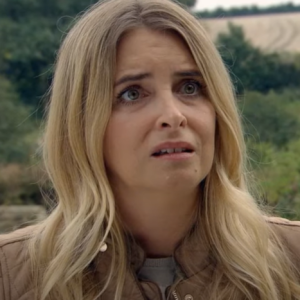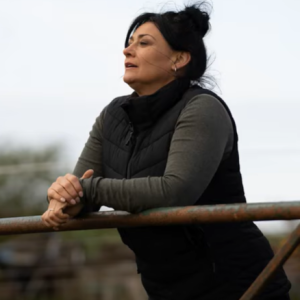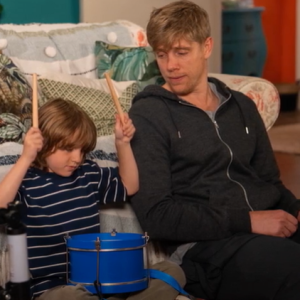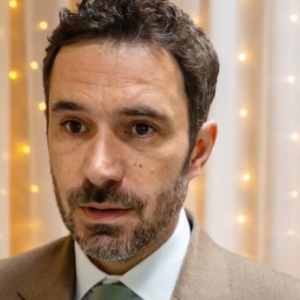Emmerdale village, long a crucible of passion, tragedy, and enduring loyalty, has been irrevocably scarred by the sudden, brutal death of Nate Robinson. In the weeks following the horrifying discovery, a suffocating pall of suspicion has descended upon the community, twisting the very fabric of relationships and turning grief-stricken mourners into bitter adversaries. At the epicentre of this devastating maelstrom stood two figures consumed by sorrow, yet driven apart by the most heinous of accusations: Cain Dingle and Tracy Robinson.
Bound by their profound, albeit complex, love for Nate – one as his fiercely protective father, the other as his devastated widow – they found themselves ensnared in a web of mutual distrust. Each, with trembling, grief-fueled fingers, pointed at the other, convinced that the person they once shared a deep connection with was capable of the unthinkable. The atmosphere between them was not merely cold; it was a frigid void, thick with a hatred born from shattered hearts and the unspeakable anguish of loss. This toxic backdrop set the stage for a day the entire village had dreaded: Nate’s funeral, a solemn occasion meant for reflection and farewell, instead poised to erupt into a horrifying battlefield.
Tracy, her heart a gaping, bleeding wound, had made her wishes chillingly clear. The formidable Dingle clan, and most emphatically Cain, were to remain absent from the sacred ceremony. She simply could not bear the sight of the man she believed had stolen her future, while simultaneously attempting to bid a final goodbye to her cherished past. For Tracy, their presence would be a sacrilege, a defilement of Nate’s memory. Yet, the Dingles, a family forged in the crucible of unwavering loyalty and defiant tradition, viewed the mandate entirely differently. To them, abstaining from their kin’s final rites would be an admission of guilt, a profound betrayal of their shared bloodline. They were coming to mourn their beloved Nate, and no one, least of all the woman accusing their stoic patriarch, was going to deter them.
As the ancient church bell began its mournful, resonant toll, the scene inside the cold, stone edifice was set for a confrontation of epic proportions – a visceral clash of raw grief and unbridled fury that threatened to shatter the fragile semblance of peace within the service. The tension was a palpable, suffocating entity within the hallowed walls. Every hushed whisper, every furtive, sideways glance felt like a spark igniting in a room saturated with gunpowder. When the Dingle family, a formidable phalanx of sorrow and defiance, filed into the pews, a collective gasp rippled through the assembled mourners. Tracy stood rigidly at the front, her back a defiant wall against them, but everyone present could feel the seismic wave of her pain and incandescent anger. This was it, the precipice before the inevitable explosion.
And then, from the most unexpected corner, a voice, calm yet commanding, sliced through the stifling hostility. It was John Sugden, a man whose presence had been a quiet, comforting constant in the village, a seemingly compassionate friend to all. Stepping forward, his face a carefully constructed mask of profound sorrow, he urged everyone to find a shred of decency, to show some modicum of respect – not for each other, but for the man they had all lost, Nate. He spoke with poignant eloquence of unity, of shared grief, of the paramount need to put aside bitter differences for the sake of the departed. To the unsuspecting mourners, his words resonated like a beacon of reason, a voice of compassionate friendship attempting to mend an agonizing rift. To those watching from the outside, however, his every syllable was a chilling masterclass in insidious manipulation. Each word was a desperate, calculated attempt to control the narrative, to ensure Cain and Tracy remained locked in their mutual animosity, thereby guaranteeing that the blinding spotlight of suspicion never, ever turned towards him. He saw their devastating war as his impenetrable shield, and he was consumed by terror at the thought of it ending.

His gamble, however, had the most unexpected, and for him, catastrophic, opposite effect. Perhaps it was the sheer, crushing emotional exhaustion of the ordeal, weeks of relentless anguish and accusation. Or perhaps John’s seemingly heartfelt plea for decency ironically managed to strike a profound, unexpected chord deep within Tracy. Looking at Nate’s coffin, a stark reminder of her irretrievable loss, she finally faltered. Her shoulders slumped, the monumental fight visibly draining out of her. In a quiet, broken whisper, a voice devoid of its former fire, she relented. The Dingles, after all, could stay. That single, fragile gesture of peace, a concession born from the depths of her suffering, was all it took. The formidable dam of hatred that had stood as an insurmountable barrier between Cain and Tracy for weeks, finally began to crack, a slow, agonizing fissure in their shared wall of pain.
After the funeral service, away from the prying, judgmental eyes of the village, they found themselves alone for the first time, stripped bare of the defensive armour of anger. The silence between them was heavy, pregnant with unspoken truths, with shared regrets, with the weight of unimaginable loss. It was Cain, gruff and emotionally guarded as ever, who eventually broke it. He didn’t offer a traditional apology, not in the way one might expect, but he looked at Tracy, his own usually hardened eyes shadowed with a profound, gut-wrenching loss, and admitted the one truth he could no longer deny: “I loved Nate.” The admission hung in the air, raw and vulnerable, a testament to the depth of his paternal grief. And in that pivotal moment, Tracy saw not a monster, not an accuser, but a grieving father, a man stripped bare by sorrow. The meticulously constructed walls she had built around her heart, brick by painful brick, crumbled to dust. The tears she had been holding back for what felt like an eternity finally fell, not just for Nate, but for the burgeoning, shared understanding that was dawning between them. “I know you did,” she whispered, the fight utterly gone from her voice, “And I did too, so much.” It was a confession, a shared truth, a mutual understanding that changed everything. Looking at each other – truly looking, for the first time in weeks – they both knew. The blinding rage, the bitter accusations, the absolute certainty of the other’s guilt; it was all a lie they had told themselves to cope with an unbearable, senseless reality. Neither of them could have hurt Nate. Their profound, undeniable love for him was the singular, undeniable proof of their innocence.
The relief that washed over them was palpable, a brief, fragile reprieve, but it was immediately replaced by a new, cold, terrifying question. If it wasn’t them, two people utterly consumed by grief and love for Nate, then who was it?
Suddenly, they were no longer enemies. They were allies, forged in the crucible of shared sorrow and united by a new, burning purpose: to find the person who had so ruthlessly torn their world apart. It was Tracy who connected the first crucial, chilling dot. “The one thing I keep coming back to,” she said, her voice low and intense, her mind racing with newfound clarity, “is Nate’s phone. It ended up at my house. The police said it was used half a mile away from the village after he… after it happened. But then someone planted it back there. It was put in my house to frame me.” She looked at Cain, her eyes wide with the horrifying implication that solidified with sickening certainty. “It’s got to be someone we know. Someone who could get into my house. Someone who was close to us.” The pieces began to slot into place with an unnerving, brutal speed. This wasn’t a crime of passion, a momentary lapse of reason. This was cold, calculated, devious. This was the meticulous work of a snake hiding in the grass, a predator who had watched them tear each other apart and allowed them to do it.
As Aaron Dingle, sensing the seismic shift in the air, joined them, he voiced the question that hung unspoken, heavy with dread, between them. “So, you’re saying the killer? They could be close? One of us?” Cain’s gaze hardened, his expression turning to unyielding granite. All the raw, misplaced anger he had previously directed at Tracy now had a new, horrifyingly faceless target. “Looks that way,” he growled, the words a chilling promise of the storm to come, a vow of vengeance that would shake the very foundations of Emmerdale.
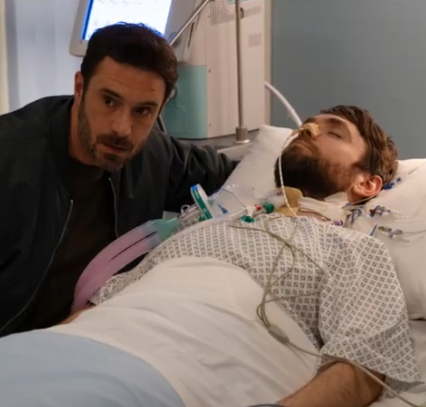
And across the sombre graveyard, partially hidden by the ancient, yew tree, John Sugden felt a tremor of pure, unadulterated panic. He had come to a funeral hoping to bury his monstrous secret forever, to inter it beneath the freshly turned earth of Nate’s grave. But as he watched his two greatest shields – Cain Dingle and Tracy Robinson – lower their weapons and finally join forces, he knew with a certainty that chilled him to the bone that he might have just inadvertently dug his own grave. The hunt was undeniably on, and justice, in its most formidable and relentless form, embodied by Cain Dingle and Tracy Robinson, was coming for him. Emmerdale has never witnessed such a terrifying pursuit, and audiences are on the edge of their seats, waiting to see if John Sugden can escape the inevitable reckoning.
